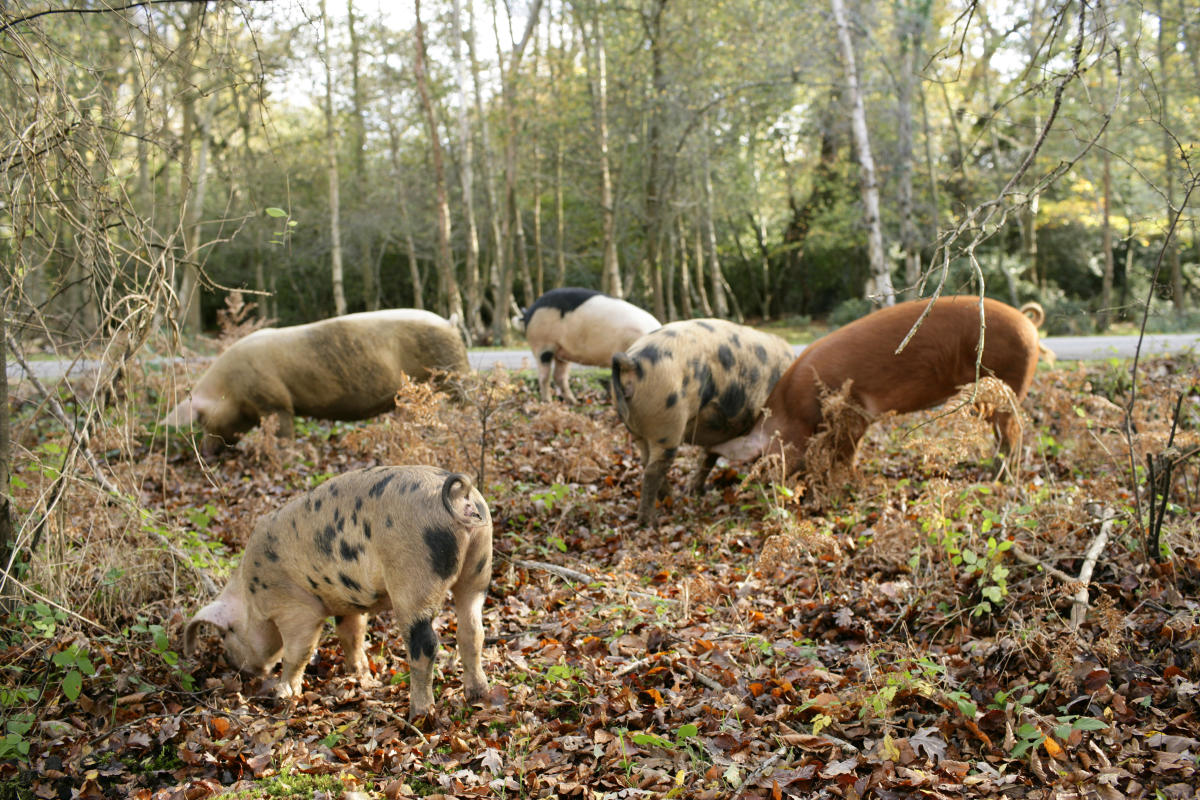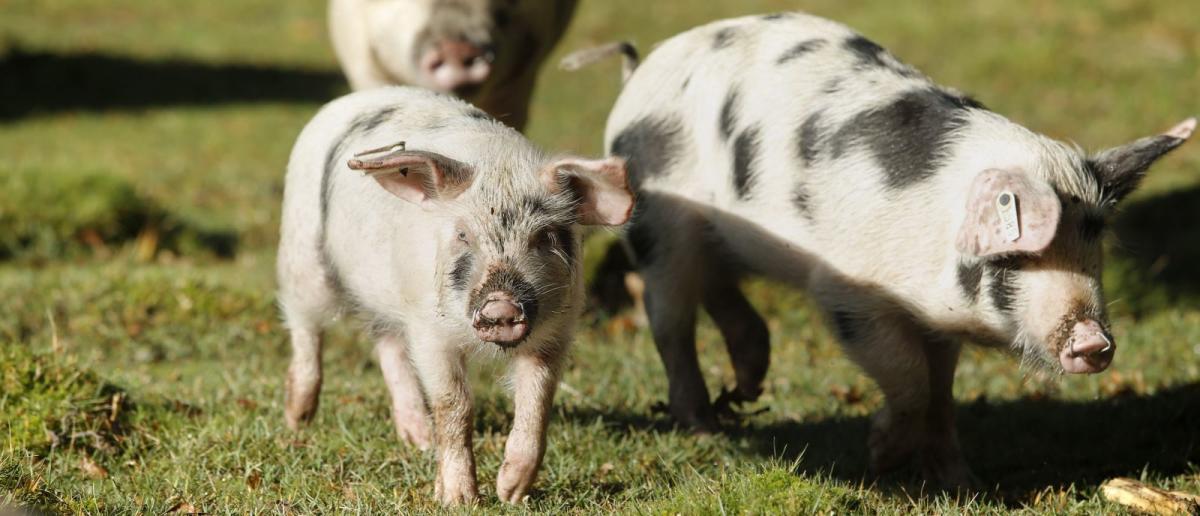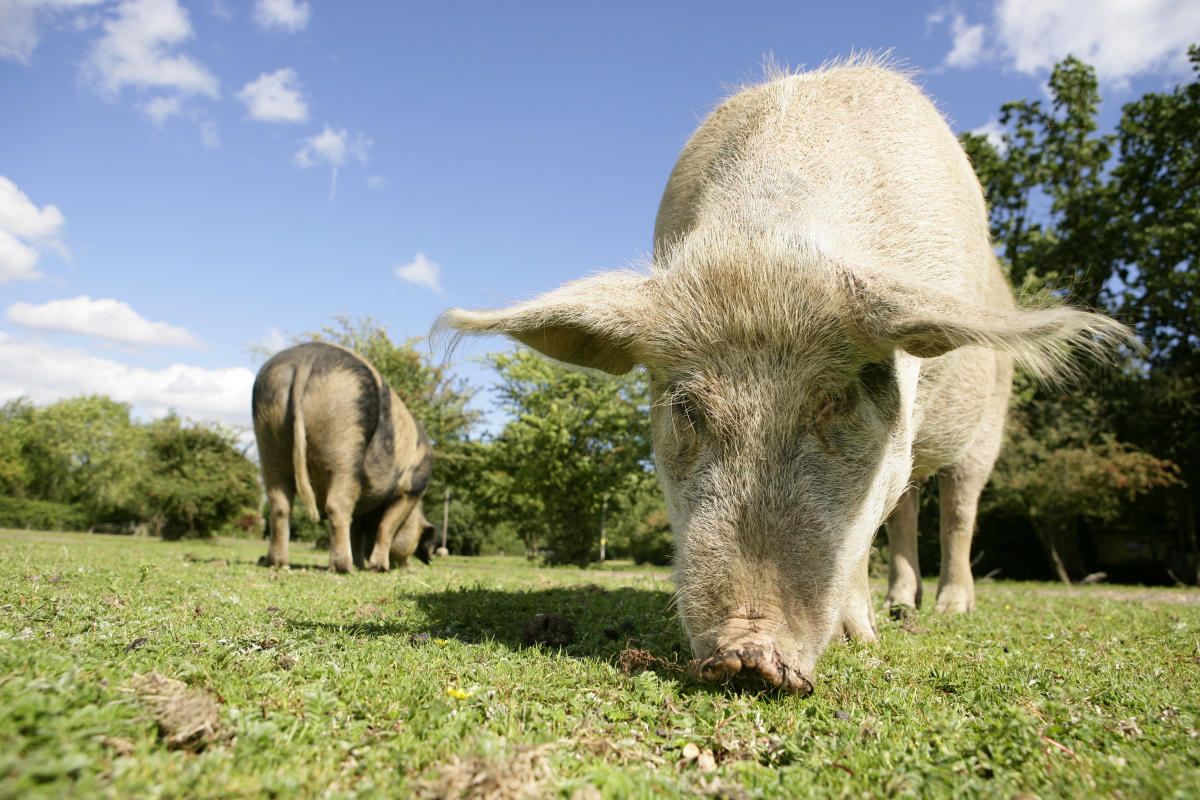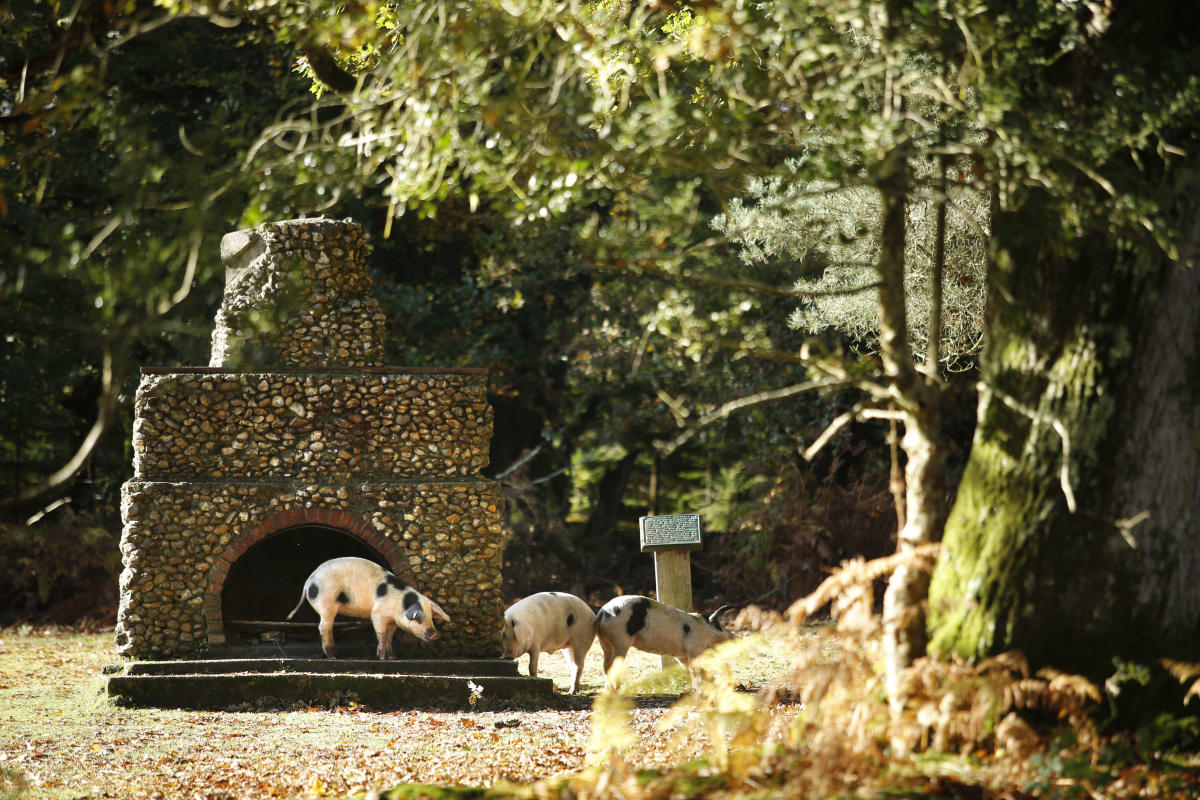Fancy seeing something truly unique? If you visit the magical New Forest from September 11 onwards, you’ll be able to witness one of the UK’s most endearing local customs.
On that date, until Friday November 17, around 600 pigs will be joining our famous free-roaming ponies, donkeys and cattle, at Pannage.
 Simply put, that means the happy porkers will be wandering through the woodlands, feasting on the fallen acorns, beech mast and chestnuts, although they’re also partial to a crab apple, too!
Simply put, that means the happy porkers will be wandering through the woodlands, feasting on the fallen acorns, beech mast and chestnuts, although they’re also partial to a crab apple, too!
Like many a New Forest tradition, Pannage, known as ‘Common of Mast’, started in the era of King William the Conqueror and is one of six ancient rights accorded to commoners at that time. Pannage season is slightly different every year, and its dates are decided upon by the Forest’s Court of Verderers.

It started as a practical way of ensuring that the forest’s glut of acorns, which can be harmful to ponies if eaten in quantity, were taken by the pigs, instead. Pigs are known to pick up an acorn, crack it like a nut and eat the kernel after spitting out the harmful skin, whereas if ponies consume too many, the tannins can destroy their liver.
Like the forest’s other roaming animals, the pigs - which can be any breed, from Saddleback to Gloucester Old Spot - are not wild. Each one has its own ear tag and a nose-ring to limit rooting damage to the forest floor, and they all belong to commoners to whom they return each night, before being released again the next day.

Although Pannage pigs have been known to wander through villages, the best place to find them is any of the ancient oak forests, especially around Bolderwood and on the Knightwood Oak Trail, and they are also fond of Bramshaw village in the Forest’s north. Keeping an ear out for their happy grunts and squeals can also lead you to their feeding spots, too.
Like all our livestock, they will look amazing on your TikTok or Insta feed and they are generally happy to be photographed or observed from a respectful distance – if they roam towards you, quietly move away.
Do NOT touch or feed the pigs, no matter how friendly they look. Never approach their piglets and keep your dog on a lead when you’re near them – pigs are very protective of their young and each other, and on rare occasions they can deliver a hefty bite.

*For more information about Pannage, visit thenewforest.co.uk

